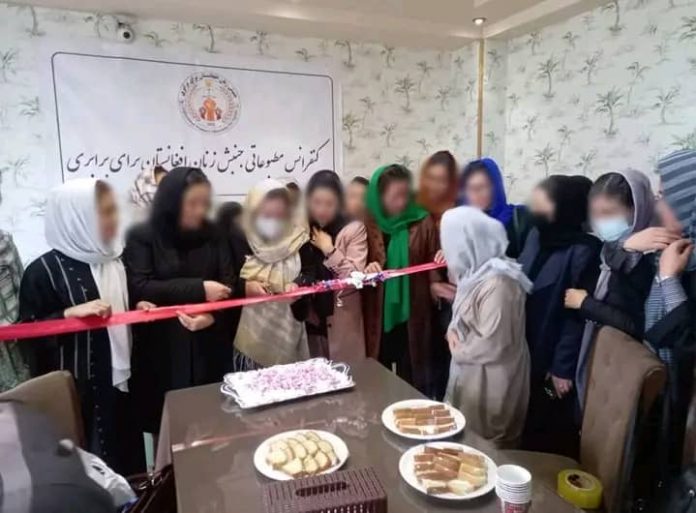Khaama Press, November 3, 2022
Taliban Arrests Women Human Rights Activists and Journalists in Afghan Capital
The Taliban detained women journalists and human rights activists, as well as four men, from a press conference in west Kabul, the Afghan capital, disrupting the event and taking them to an undisclosed place.

According to sources, the Taliban arrested women journalists and activists in Kabul, including Zarifa Yaqoubi, one of the demonstrators who attended a press conference announcing the formation of the Afghan Women’s Movement for Equality, on Thursday, November 3.
The gun-wielding Taliban forces including women police officers invaded a women’s press conference held in Dasht-e-Barchi, a Hazara neighborhood in west Kabul, arbitrarily arresting women activists, journalists, and their male colleagues, sources told Khaama Press.
A source, who spoke on the condition of anonymity, added that the Taliban initially encircled the premises before intrusively disrupting the press conference held by women, forcibly arresting them and taking their mobile phones.
The Taliban’s arbitrary detention of journalists and human rights advocates in Afghanistan has outraged Afghan civil society and the media, which has demanded both their immediate release and an end to the group’s persecution of them.
The South Asia Campaigner for Amnesty International, Samira Hamidi, also reacted to the Taliban’s arrests by tweeting, “Another act of HR violation & abuse. Lack of accountability has enabled Taliban to continue with these violations confidently.”
An official statement from the Movement of Change for Afghanistan party also demanded Yaqoubi’s immediate release. “We expect Ms. Yaqoubi and her colleagues to be released as soon as possible. We demand an end to arbitrary arrests of protesting women by the Taliban,” the statement reads.
Recognizing journalists as the “bedrock” of an independent press, a statement from the US Department of State on The International Day to End Impunity for Crimes against Journalists, November 2, called for justice for courageous journalists across the world.
The statement demanded further action by the international community against violent assaults, legal claims of intimidation, transnational repression, and regulatory pressures on journalists that muzzle media and information dissemination.
According to Reporters Without Borders, only 328 of the 547 media outlets that were active in Afghanistan prior to the Taliban’s takeover are still operating, with 219 print, visual, and aural outlets being shut down under the Taliban rule.
This comes since the Taliban’s assumption of power in mid-August last year, with what the analysts call a “brain drain” in Afghanistan, many skilled journalists and media professionals were forced to leave the country, in fear of persecution.
The Taliban’s arbitrary detentions and draconian measures and edicts imposed on Afghan women have significantly contributed to the already-diminishing number of women’s presence in the media.
Characters Count: 3277
